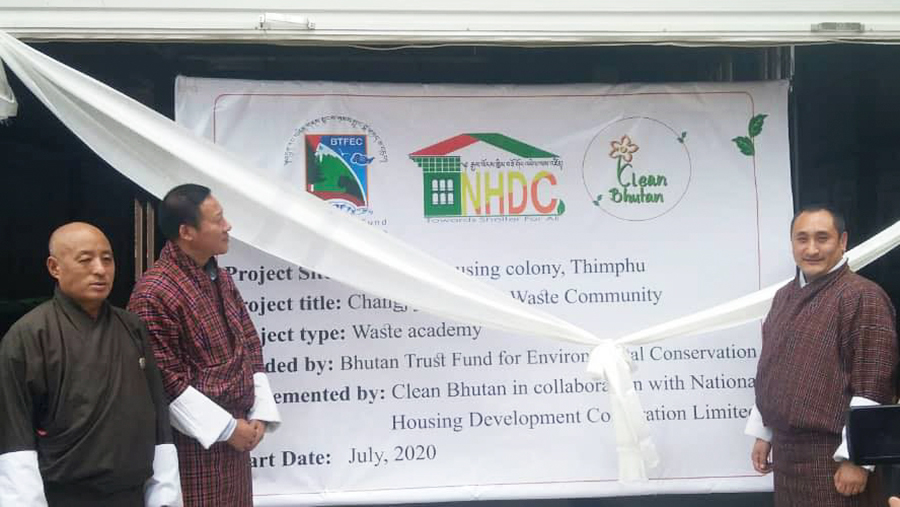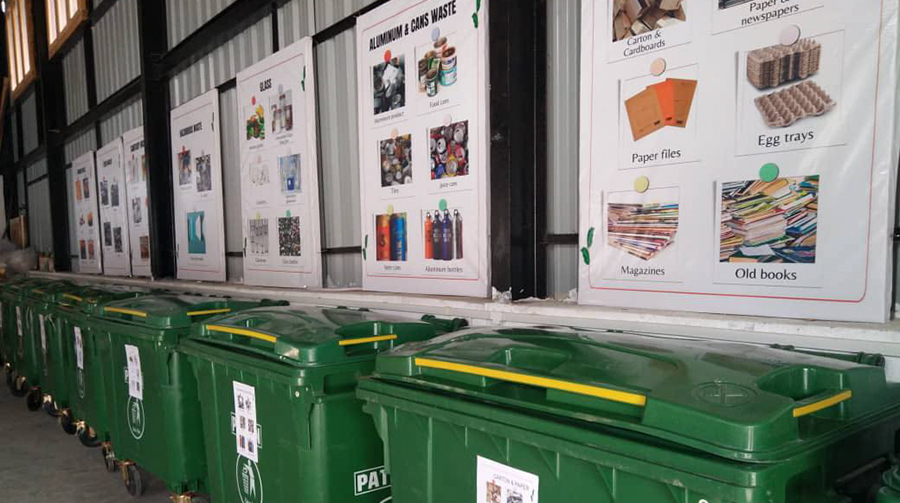
Bhutan now has its first academy to train people on waste management. People will now be able to get various waste recycling trainings at the academy. However, the project is targeting housing colonies currently. Called the Changjiji Waste Academy, it was launched today at the Changjiji Housing Colony in Thimphu. In the future, the academy will also develop a basic curriculum to educate people on waste management.
The project initiated by Clean Bhutan is implemented in collaboration with the National Housing Development Corporation (NHDCL). The Changjiji Housing Colony is chosen as the first area to implement the project as it has the highest number of residents in the capital with over 750 households.
 People can now visit the academy to get trained on recycling and reusing waste. Trainers at the academy will inform the people to collect the type of waste they want to recycle or reuse a month before the training begins. The training is expected to help people generate income from the sale of reused waste. Trainings will be provided for free but a nominal fee will be charged in the future.
People can now visit the academy to get trained on recycling and reusing waste. Trainers at the academy will inform the people to collect the type of waste they want to recycle or reuse a month before the training begins. The training is expected to help people generate income from the sale of reused waste. Trainings will be provided for free but a nominal fee will be charged in the future.
“The whole modality of this is to educate the community. We wanted them to learn how to segregate waste practically and we will be teaching here how to segregate different types of waste. We will be training some families from different housing colonies to set up similar programmes so that they can have a segregation unit. The next level for the community is to find out the uses of the waste they have,” said Nedup Tshering, executive director of Clean Bhutan.
Slowly, if the current approach is successful, the project is planning to replicate it in the armed-force housing colonies and the National Provident and Pension Fund’s housing colonies. It will also be implemented in NHDCL’s housing colonies in other districts.
“The ultimate aim is, once this project is fully functional, we are also targeting women groups from other housing areas so that they come here and get trained and once they go back, they can also sensitise and advocate their colleagues in the districts to segregate waste and then put them to better use,” said Rinchen Wangdi, the CEO of NHDCL.
The project worth over Nu 10 M is funded by the Bhutan Trust Fund for Environmental Conservation. According to the National Waste Inventory Survey, the country produces more than 170 metric tonnes of waste every day.
Ugyen Dorji
Edited by Kipchu









